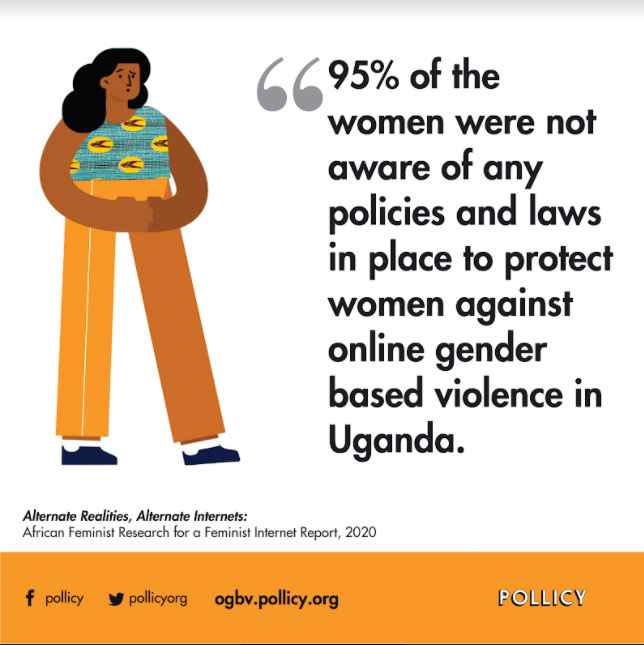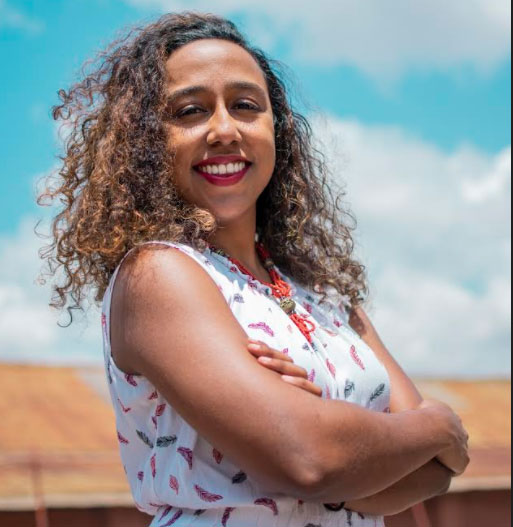
Africa faces a challenge with Online Gender Based Violence according to a new report released by Pollicy.org
Kampala, Uganda | THE INDEPENDENT | One third of Ugandan women have experienced gender based harassment online, according to a new report released by Pollicy.org on the internet experiences of women in African countries.
The most common type of online gender-based violence experienced in Uganda is sexual harassment, accounting for 42% of respondents, followed by offensive name calling (24%) and stalking (17%). While the internet enables people to access knowledge, conduct business and connect with others, it is also proving to be a dangerous place for women, since social media is used as a new way to reinforce old systems of oppression and violence.
Recent reports suggest that gender-based violence as a whole is only getting worse during the COVIE-19 crisis.
The United Nations Population Fund estimated that three months of lock-down would result in 15 million more cases of domestic abuse and millions of women losing access to vital services like contraceptives and prenatal care. A recent Kenya Health Information survey reported that close to 4,000 girls under the age of 19 “were impregnated” in a single county over the lock-down – about 200 of these girls were below the age of 14. In Kampala, it was reported that two women were killed by their partners within one day in early August.

There has so far been a lack of robust data about how women experience gender-based violence online in Africa, and without any data, digital platforms and legal systems can ignore the issue, but now more information on the seriousness of the problem is coming to light.
Pollicy, a civic-technology organization based in Kampala, Uganda, in partnership with the Feminist Internet Research Network under the Association for Progressive Communication and with funding from the International Development Research Centre, conducted a study of over 3,000 African women living in five countries (Ethiopia, Kenya, Uganda, Senegal, and South Africa) to understand their experiences with GBV online.
The results are striking.
- 75% of women interviewed reported suffering from mental stress and anxiety due to their experiences of online violence.
- 20% of respondents experienced some form of online violence, and that number rose to 32.6% in Uganda.
- 20% of online gender-based violence (OGBV) across Africa took place on Facebook, followed by 27.4% on WhatsApp and 12.4% on Instagram.
- 50% of Ugandan victims who reported the experience to the social media platform had no resolution.
-
66% of women responded by blocking or deleting the perpetrator; 20% ignored the perpetrator and 14% deleted or deactivated their own accounts. Only 12% reported the abuse to the website or online platform.
-
90% of the respondents who experienced online violence either did not know the identity of the perpetrator or found them to be a stranger.
-
20% of women interviewed did not know where to turn for information on online safety and security.
-
95% of Ugandan women were not aware of any policies or laws in place to protect women against online gender-based violence in Uganda.
Most countries across the continent do not have specific legislation or strategies against online gender-based violence. Even in terms of data capture, for example, the Uganda Demographic and Household Survey 2016 (UDHS) reported that 22% of women experience domestic violence, but no data on online GBV was reported.

Neema Iyer, Founder of Pollicy, said that the main aim of the study is to inform evidence-based policy to push for digital equality.
“We want to understand how online gender-based violence manifests across Africa, and how technology companies, which are often based out of Africa, respond to this violence. When thinking of our Afro-feminist future, we need to think of an internet where both the developers and users understand the inter-sectionality of the lived experience of an African woman.”
Neema went on to propose that there is an urgent need for digital security resources to be adapted to local contexts and languages, as well as to be mainstreamed in educational curricula.
Other recommendations include training law enforcement personnel on a gender sensitive digital safety curriculum to address complaints of online gender-based violence and to provide timely technical assistance, counseling, and support to women who do choose to report.
Countries should also adopt data protection and privacy laws, as well as ensure that commissions and mechanisms are in place to implement data protection laws.
This study addresses the need to move the needle on responses by government bodies (eg. African Union, iNGOs) and social media platforms to prevent online gender-based violence and deal with perpetrators and aggressors in an appropriate manner.
*****
The full report is now available at: https://ogbv.pollicy.org
 The Independent Uganda: You get the Truth we Pay the Price
The Independent Uganda: You get the Truth we Pay the Price


